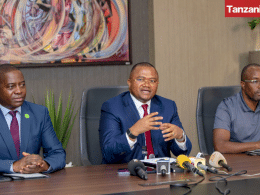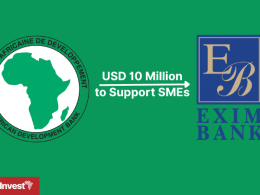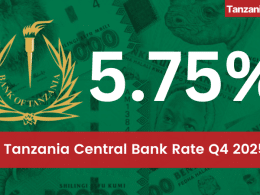TanzaniaInvest had the pleasure of interviewing Frank Nyabundege, Managing Director of TIB Corporate Bank.
TIB Corporate Bank is a government-owned development bank in Tanzania, providing strategic commercial banking services to the general public.
Nyabundege discusses the role of TIB in Tanzania’s industrialization agenda.
TanzaniaInvest (TI): Following the restructuring of Tanzania Investment Bank, three distinct, but related institutions were formed: TIB Development Bank, TIB Corporate Bank and TIB Rasilimali. Can you clarify the role of each?
Frank Nyabundege (FN): TIB is the policy bank of Tanzania, and our main mandate is to implement the government’s development goals.
The restructuring of TIB aimed at creating a ‘one stop shop’ where clients can access financial advisory services, working capital requirements and long term development financing.
The parent company, TIB Development Bank, offers long-term financing and equity services for projects with a focus on infrastructure, industrial, mining, oil and gas and services sector.
The commercial banking arm, TIB Corporate Bank provides the working capital requirements for projects as the bank is set up to complement the services of TIB Development Bank.
TIB Rasilimali is a financial advisory and securities dealing company. It also operates as a licensed broker/dealer and investment advisor for retail and institutional clients and is a member of the Dar es Salaam Stock Exchange (DSE).
In fact, the establishment of TIB Corporate Bank follows the realization that the projects previously financed by TIB Development Bank, which supplied development financing, lacked the necessary working capital.
For the past two years, we were able to lend a total of USD30m to various projects initiated by TIB Development Bank.
In addition, we apply relatively subsidized interest rates as we are looking beyond making profit but also assess the development impact of projects.
TI: Does TIB Corporate Bank only finance projects which have been previously taken up by TIB Development Bank?
FN: At TIB Corporate Bank, we might take projects that have not been financed by TIB Development Bank.
As bankers, we serve the general public, and in that regard, we also independently assist businesses that require working capital.
However, we are different from other commercial banks in that our aim is to partner with the government in the economic development of the country.
Another difference between TIB and commercial banks is in the expertise of project preparation in assessing a project’s viability as we take a longer term view than the average commercial bank.
We can also assist in improving the viability of a project and currently, our appetite is on industrial projects as the country’s focus is industrialization.
TI: According to Tanzania’s five-year development plan, the industrial sector share of GDP will increase to 23.7%, and manufacturing to 12.5% by 2020. How feasible is this?
FN: I deem this feasible because we have strong political will, which is very important.
President Magufuli is also encouraging a working mind-set among Tanzanians. People are now working and being held accountable for their actions.
I believe this is possible also because Tanzania is endowed with mineral resources and also because of its strategic geographic location with the port serving our neighboring land locked countries.
In addition, major infrastructural projects, such as the USD7b standard gauge railway (once completed) will allow cargo coming from Dar es Salaam to be transported directly to Kigoma, and shipped to the Democratic Republic of Congo (DRC).
The Acting CEO of the Tanzania Investment Centre (TIC) pointed out that with the measures that we have put in place, the ranking of Tanzania in the Ease of Doing Business report by the World Bank will improve from 132 to 100.
This will happen because in addition to political will, TIB will provide financing for viable projects.
The government has committed to capitalize TIB in order to accelerate its development goals in the FYDPII.
In 2020, I see a different Tanzania, with a burgeoning industrial sector that will have a significant multiplier effect on the economy in terms of employment, rise in incomes, and improvement of social services for the betterment of people’s lives in Tanzania.
TI: What are your ambitions going forward and the challenges ahead?
FN: Our ambition for TIB Corporate Bank is to be a tier-one bank, i.e. one of the top ten biggest banks in Tanzania.
This is feasible as government owned banks have more financial muscle.
One of the bank’s highlights this year is the partnership with Tanzania Ports Authority (TPA) as their collection agent for cargo clearing and related charges.
The challenges for the banking industry in general are that Tanzanians consider loans from banks as subsidies; of course, some debtors fail to pay due to business failure but others have not formed the habit of paying back their loan obligations.
That is a very big challenge for us, and we need to be very strict and restrictive.
In Q3 2016, the aggregate Non-Performing Loans (NPLs) in Tanzania reached 8.6% when they are supposed to be less than 5%.
However, thanks to the introduction of credit bureaus in Tanzania, those who have not been meeting their loan obligations are going to be blacklisted from the banking system.










